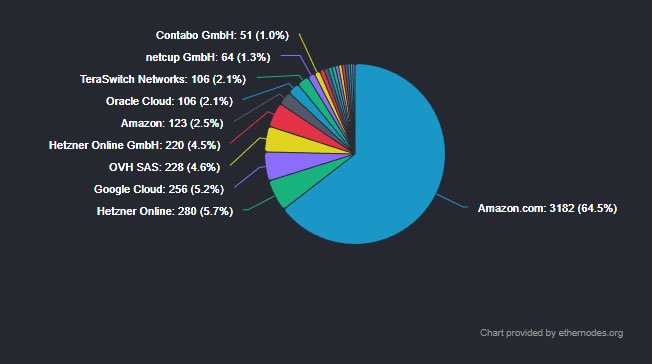The Risks of Centralized Services in Decentralized Projects
TL;DR
For a couple of hours yesterday, Amazon Web Services (AWS), which is a cloud hosting service used to power about 1/3 of the internet, had an outage.
According to data from Ethernodes, 64.5% of the Ethereum network is reliant on Amazon hosting providers but only a small fraction were affected because the outage only impacted a small region in the US.
All he has to do is attach enough value to each NFT, in order for the project to be a success. Pretty neat!
Full Story
For a couple of hours yesterday, Amazon Web Services (AWS), which is a cloud hosting service used to power about 1/3 of the internet, had an outage.
Many companies - both Web2 and Web3 - suffered outages as a result.
But Ethereum kept on a rolling.
According to data from Ethernodes, 64.5% of the Ethereum network is reliant on Amazon hosting providers but only a small fraction were affected because the outage only impacted a small region in the US.
However, the reliance on AWS is concerning.
While Ethereum itself is a Layer-1 blockchain network (and is therefore entirely decentralized), when we look down the tech stack, the majority of nodes that run it are reliant on AWS.
The good news is that some node operators recognize this; and over time, less and less Ethereum nodes use AWS for their cloud hosting service.
The ultimate solution would be for node operators to move over to a decentralized protocol like Internet Computer (ICP - which we did a deep dive on in a recent edition of Over The Shoulder).
But until then, let's hope for more moves away from AWS, and less outages.


